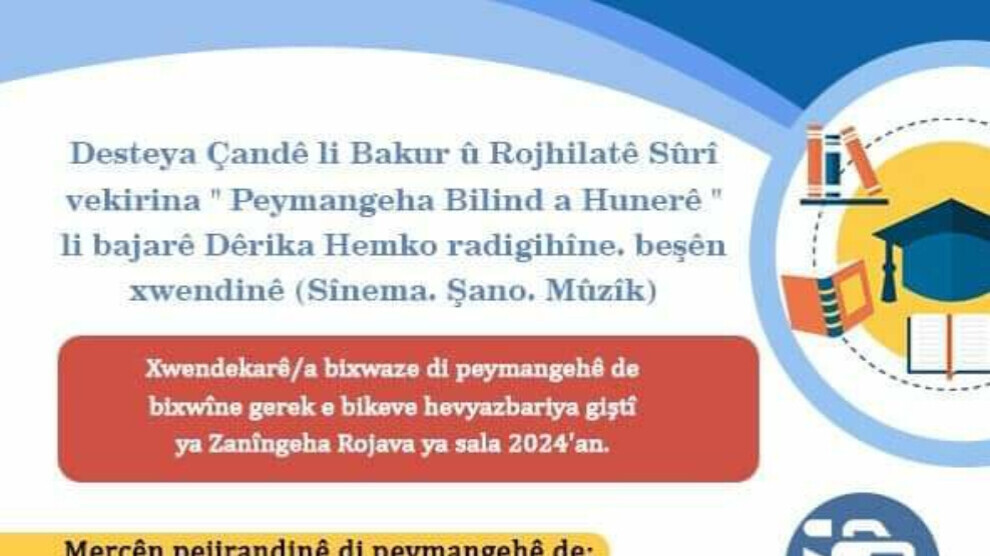Art College opens in Northern and Eastern Syria
A college for art and culture is opening in Northern and Eastern Syria. Music, cinema and theater will be taught at the new institution.
A college for art and culture is opening in Northern and Eastern Syria. Music, cinema and theater will be taught at the new institution.

Despite the massive attacks on the self-governing areas in Northern and Eastern Syria, the reconstruction process in the regions continues. Since the start of the Rojava revolution in 2012, important steps have been taken to protect and develop cultural and artistic activities in the region. Another of these steps will now be the upcoming opening of a college for art and culture. The registration deadline for the first course ends on 31 August. After the entrance exams, teaching will start on 5 October.
Cinema, Theater and Music Departments
Sîham Dawûd, co-chair of the art school, pointed out that this is the first time such an institution has been opened in Northern and Eastern Syria and said: “The art school will be opened under the leadership of the Democratic Cultural and Art Movement of Mesopotamia (TEV-ÇAND) with the support of the University of Rojava and the Cultural Council of Northern and Eastern Syria. The school will offer training in three art disciplines: music, cinema and theater. The application period for students began on 24 August and runs until 31 August. The training lasts three years. The first two years are theoretical, and the last year is practical training. Applications for the art college can be submitted through the TEV-ÇAND centers in every city in Northern and Eastern Syria, Rojava University in Qamishlo, Kobanê University in Kobanê and the Democratic Society Education Committee (KPC-D) in Shehba."
"The key is enthusiasm for art"
Sîham Dawud explained that young people aged 16 to 26 can apply to the art college: "Every student who has completed high school has the right to apply to the art college. But people who have not had the opportunity to complete their school education but have talent in art can also apply. First, there will be some written exams. The courses are taught by teachers from Northern and Eastern Syria who specialize in music, theater and cinema. In addition, some teachers at the art college will also teach online courses."
"The art college is an achievement of the revolution"
Sîham Dawud highlighted the importance of the art college: "A significant revolution has taken place in Northern and Eastern Syria at all levels. The revolution has promoted important values. One of these values is reflected in the creation of this new art college. Education at the art college will be in Kurdish. For centuries, attempts have been made to subject the Kurdish people to cultural genocide, but the resistant Kurdish people insist on preserving their culture and art. With their culture and art, they convey their pain, grief, achievements and experiences to new generations and preserve their history. In the art college, deepening and specialization are taken as the basis for further developing and spreading our culture and art."
Hêlin Silêman from Tirbêspiyê, who applied to the art college, said: "Young people are shaping the future of the revolution. I applied to the art college because I am interested in music. I think it is important to apply to art school to protect, develop and pass on our culture and art to future generations. It’s us, the young people of this region, who will determine the future of our country. All young people who are passionate about art should communicate their commitment to their country to the world through art."